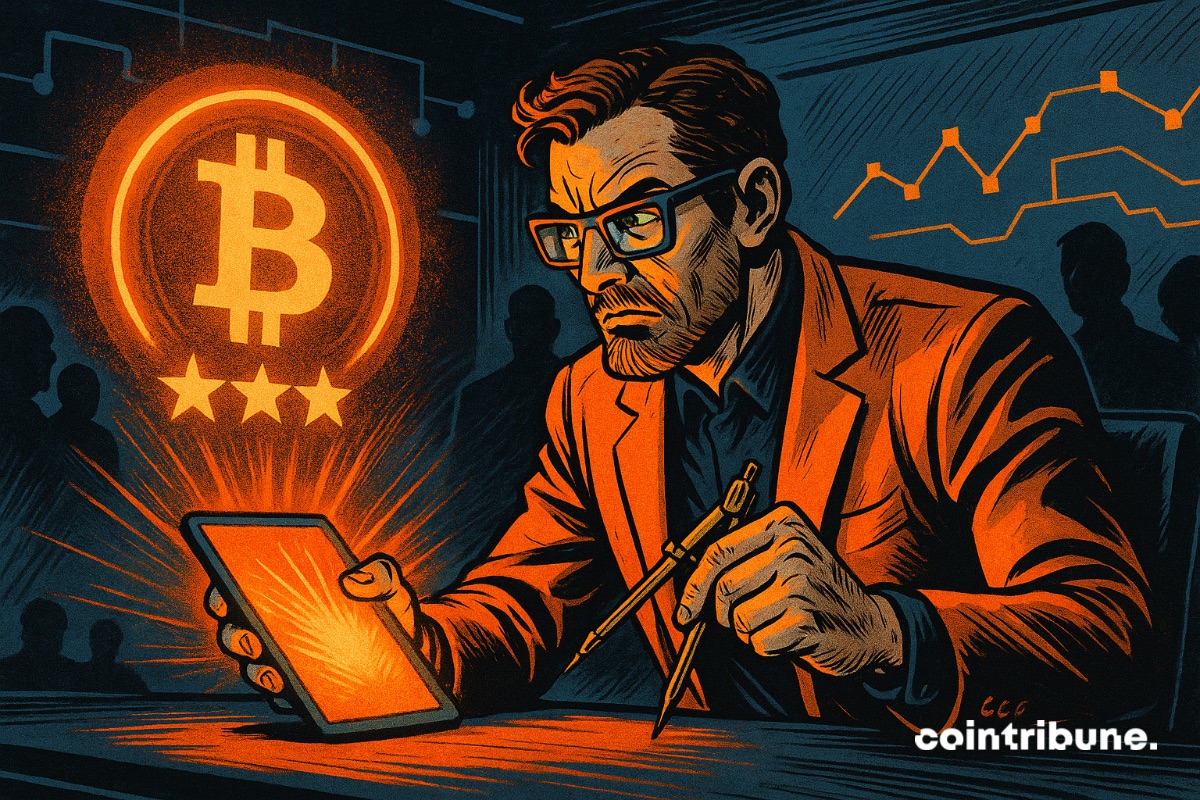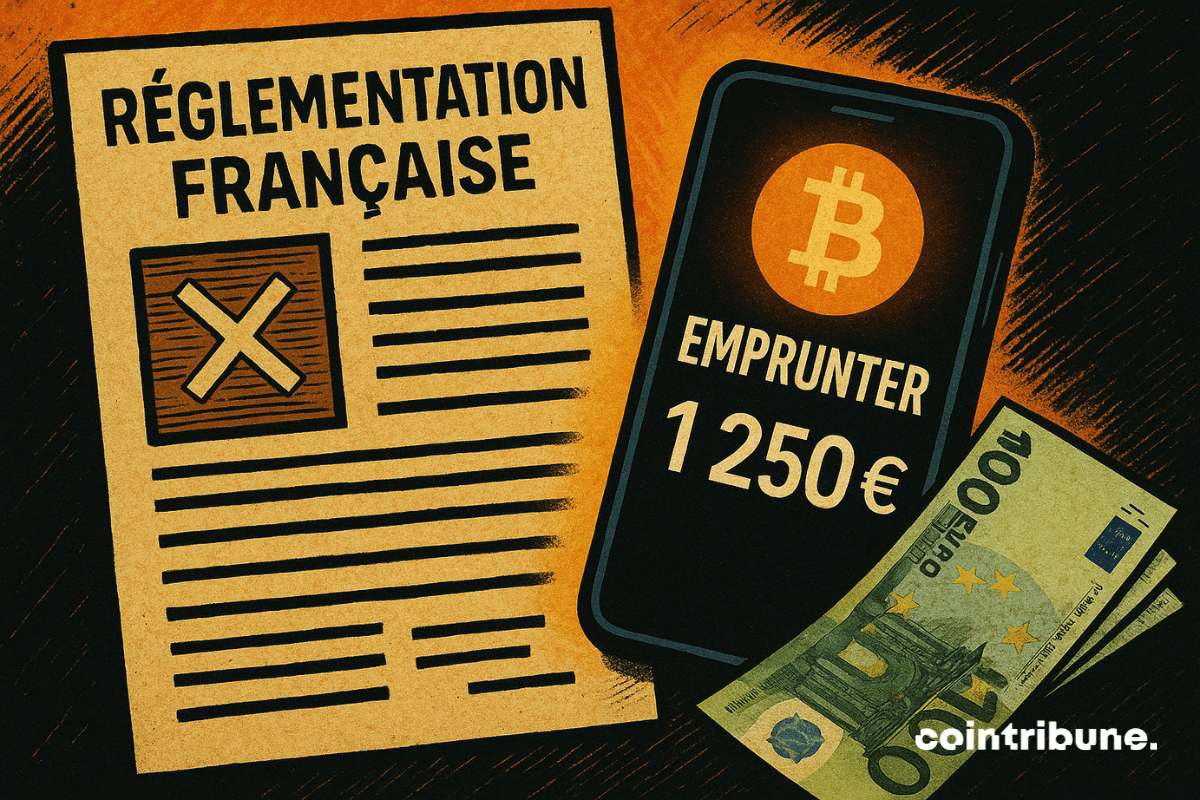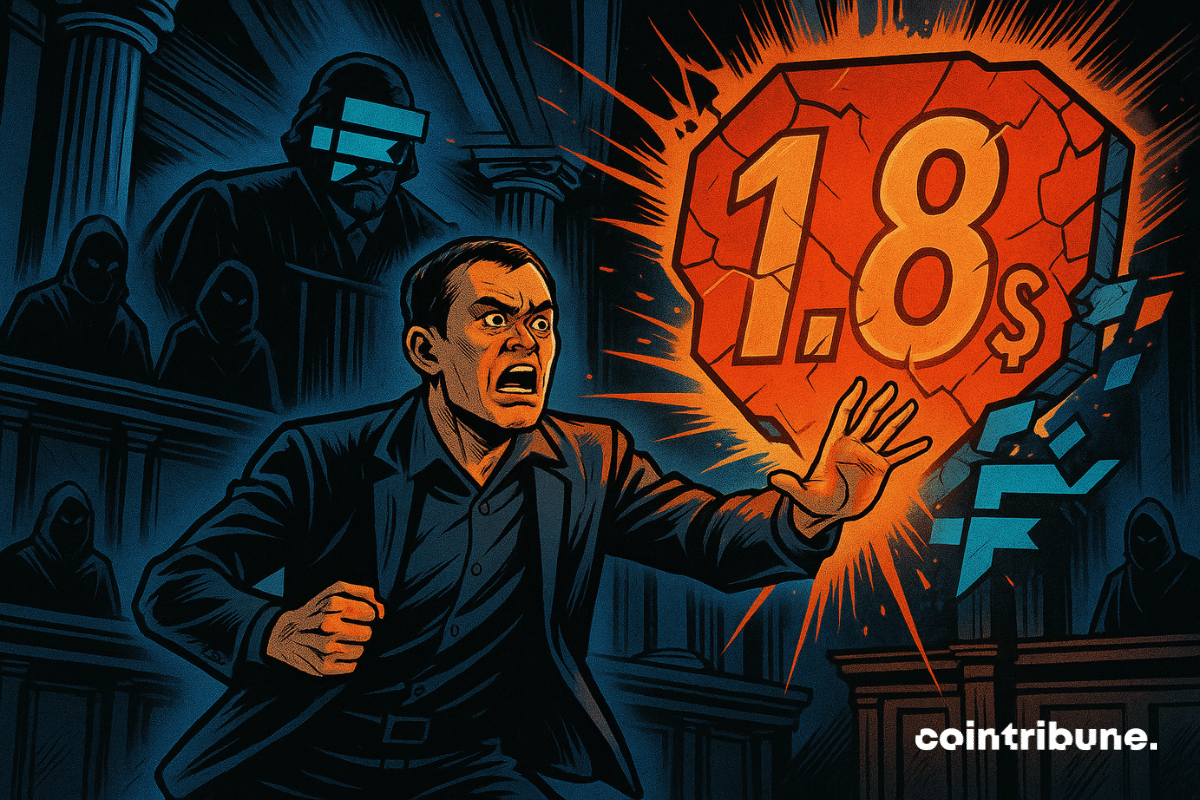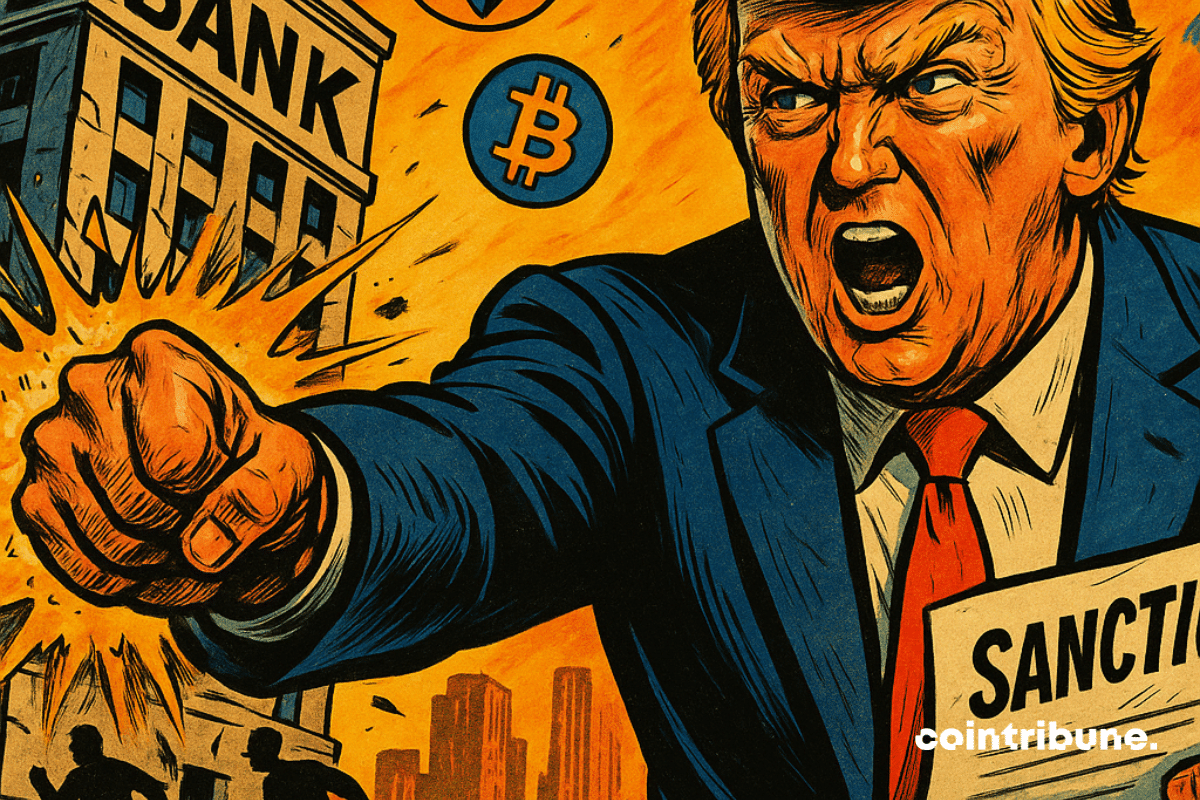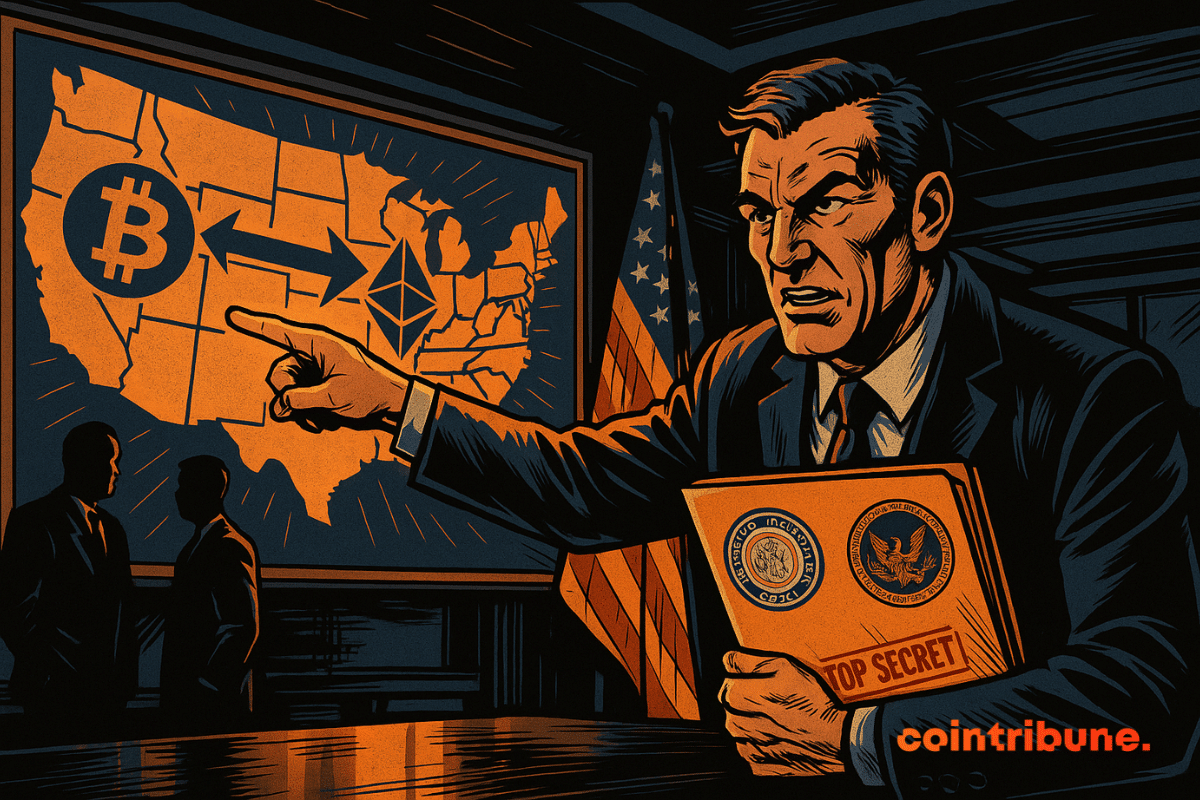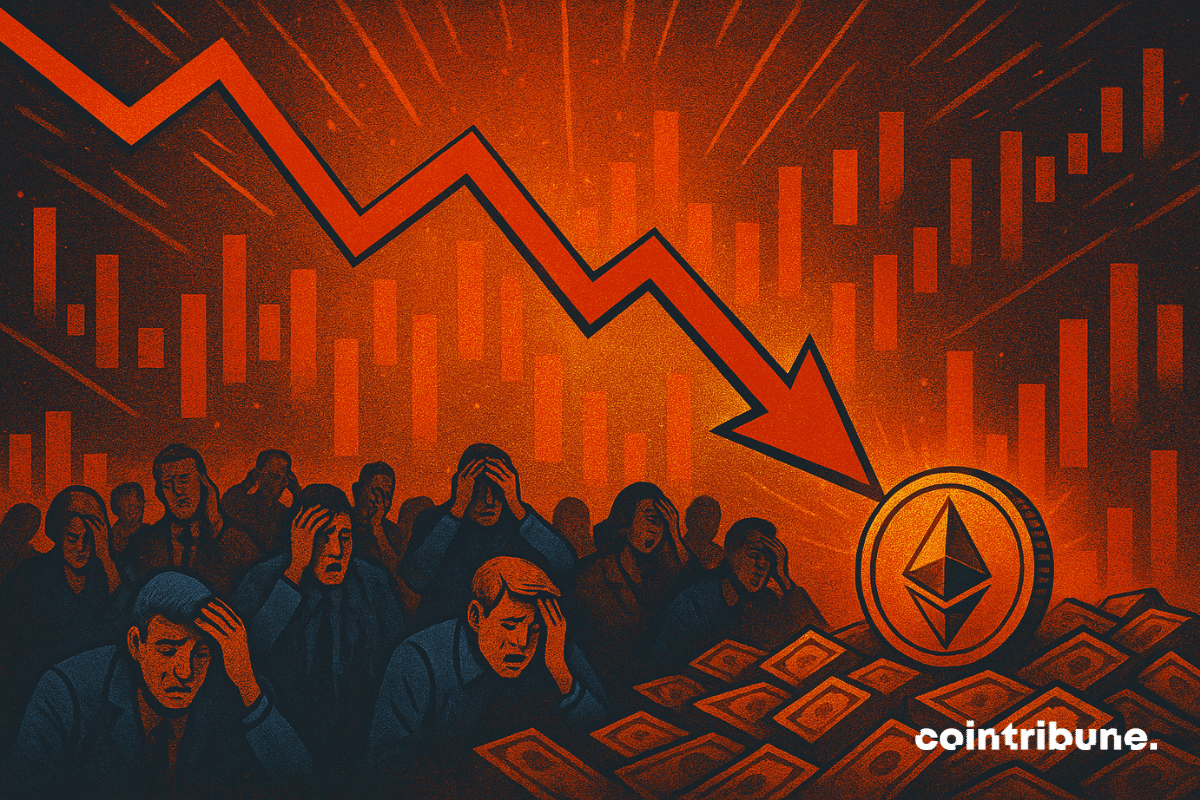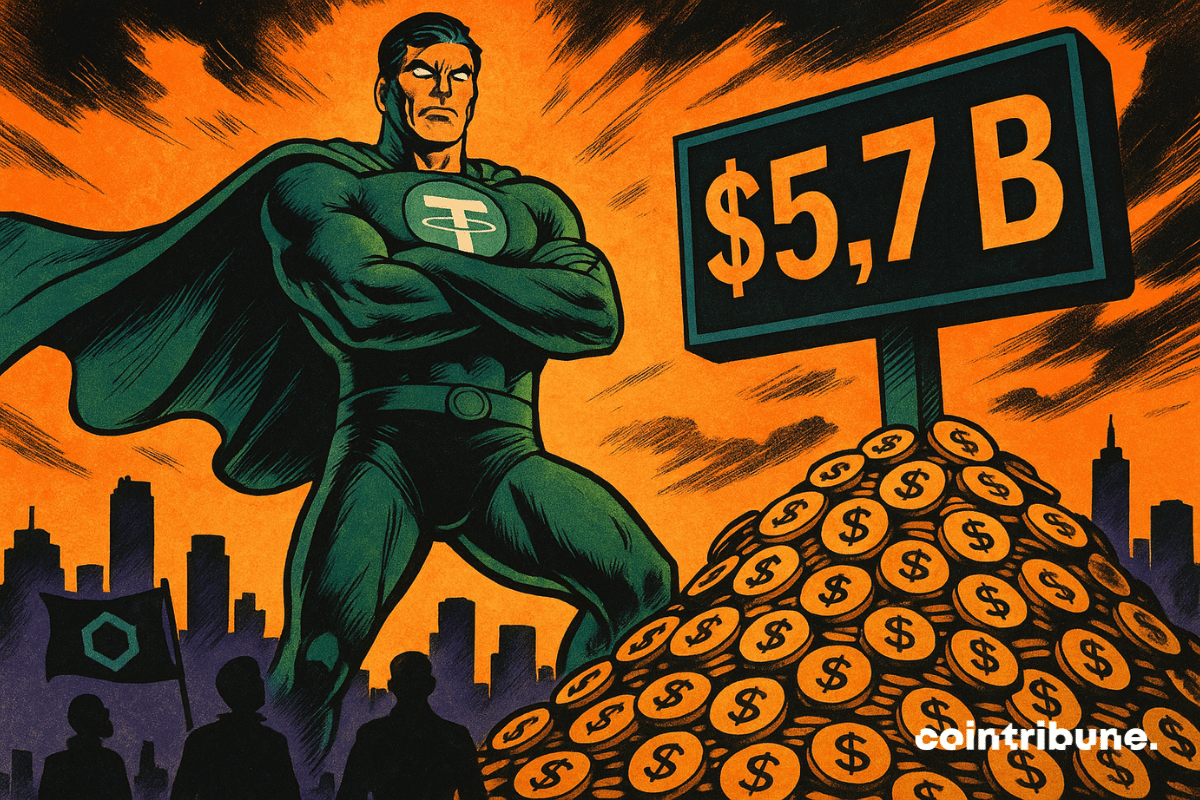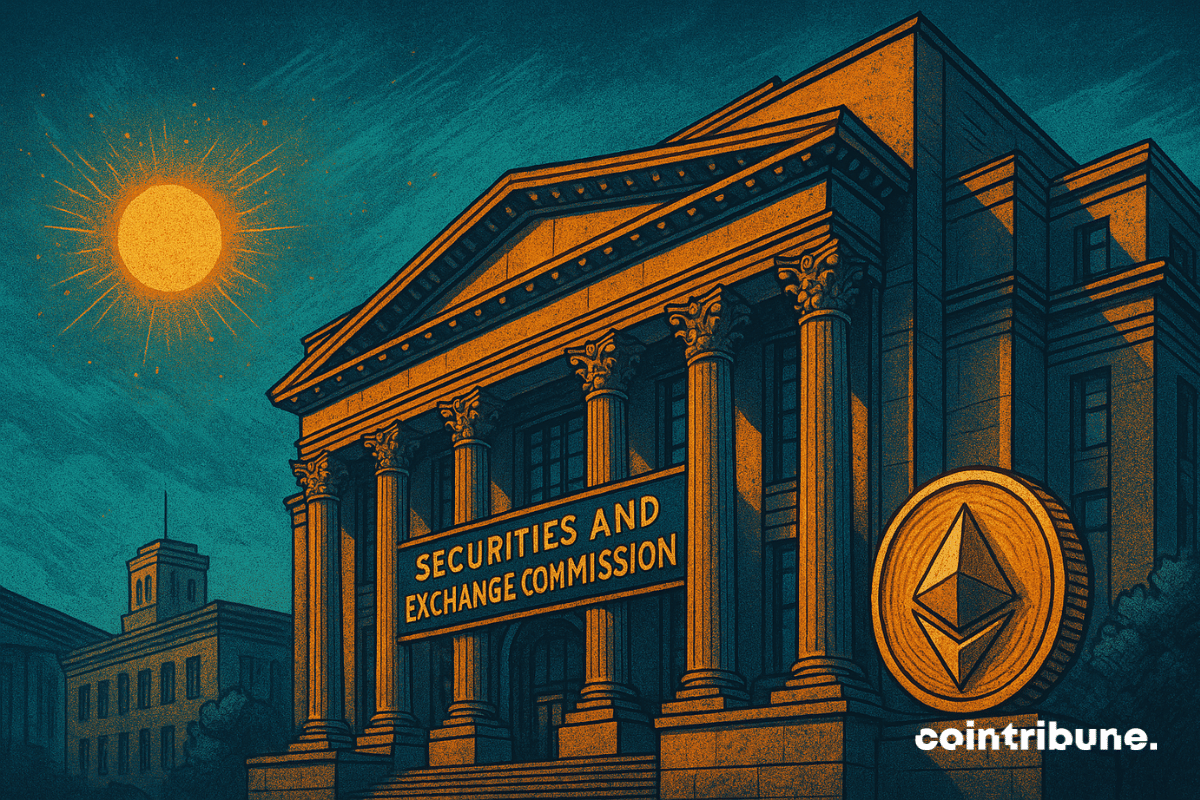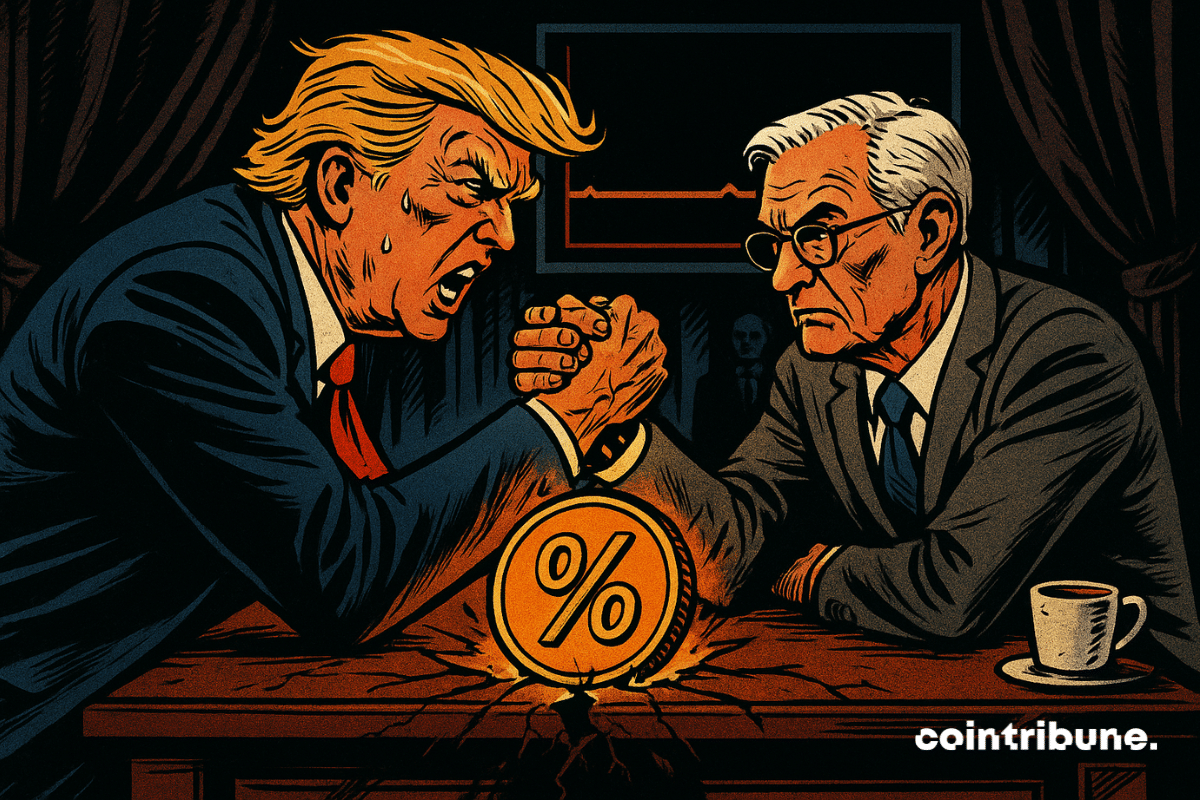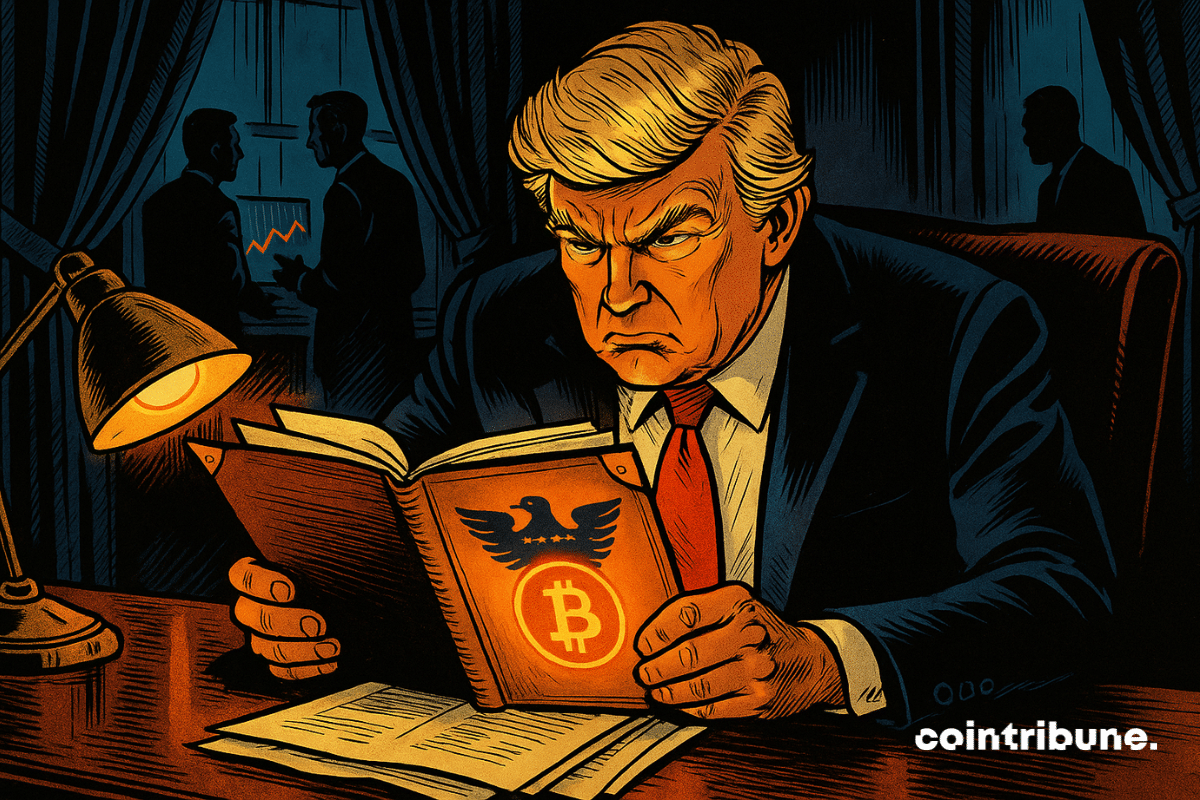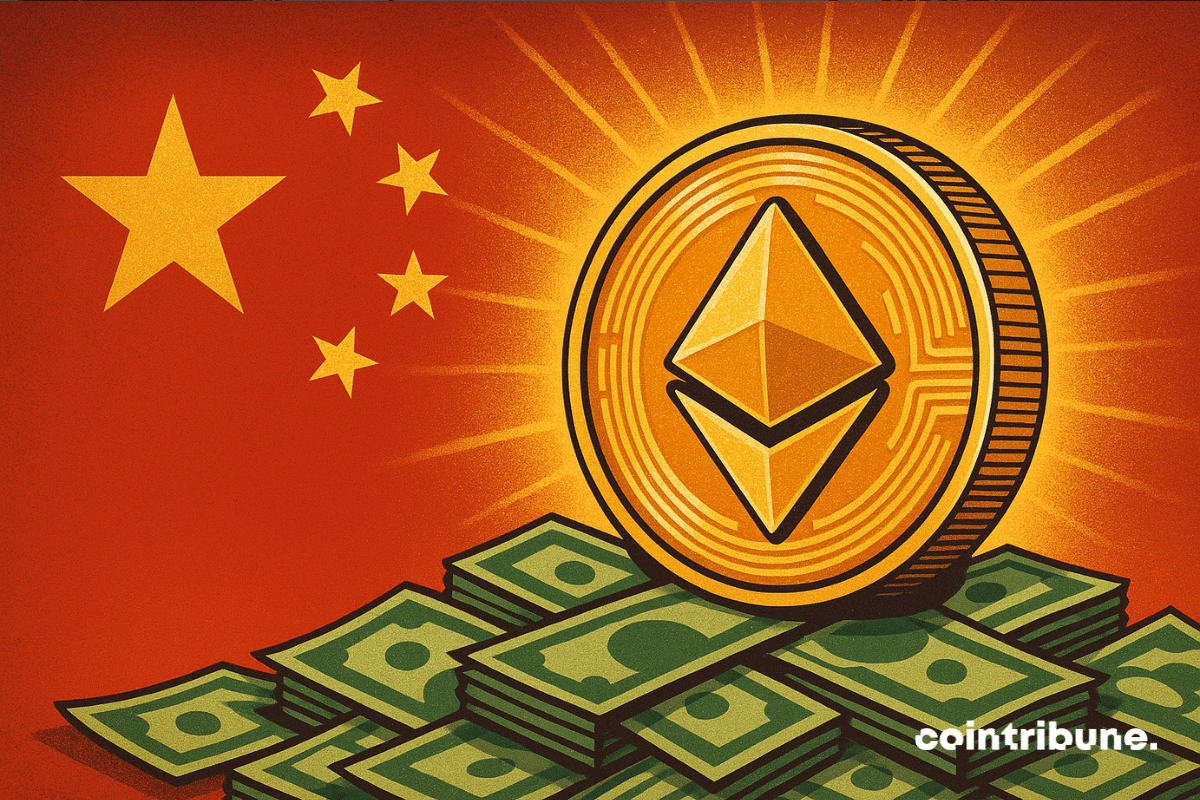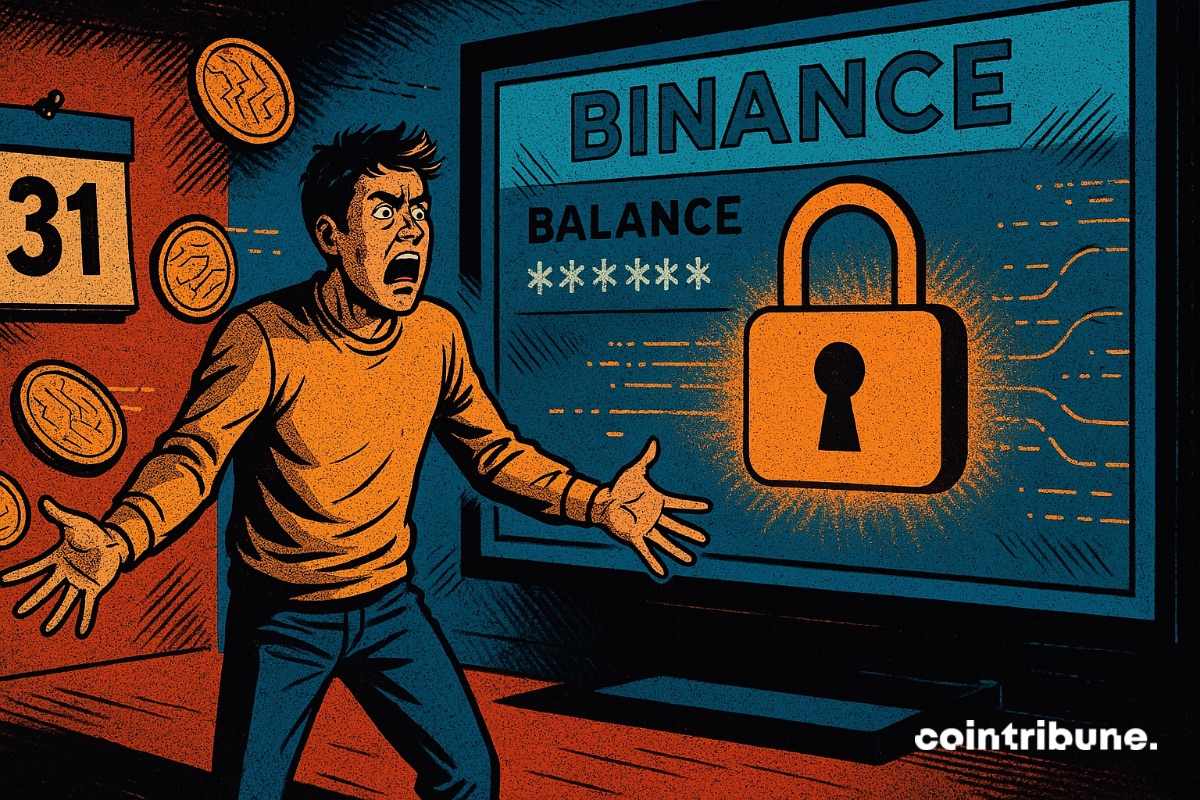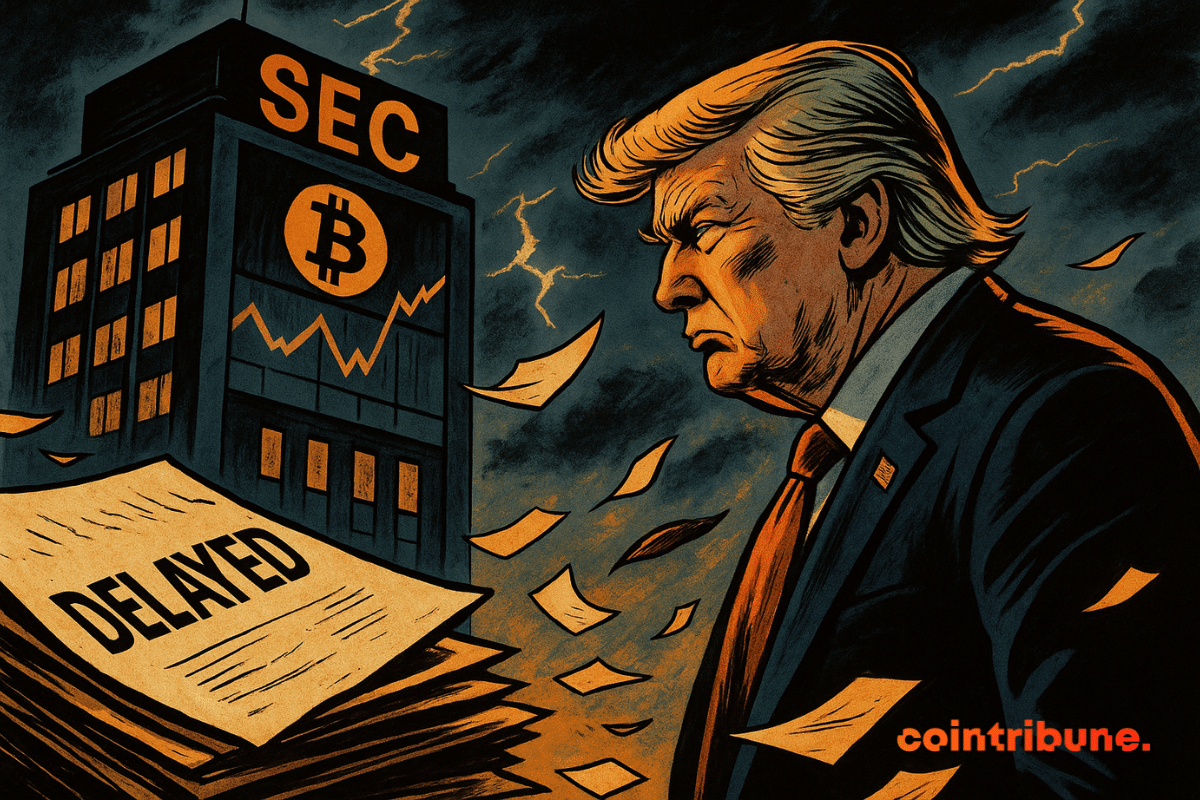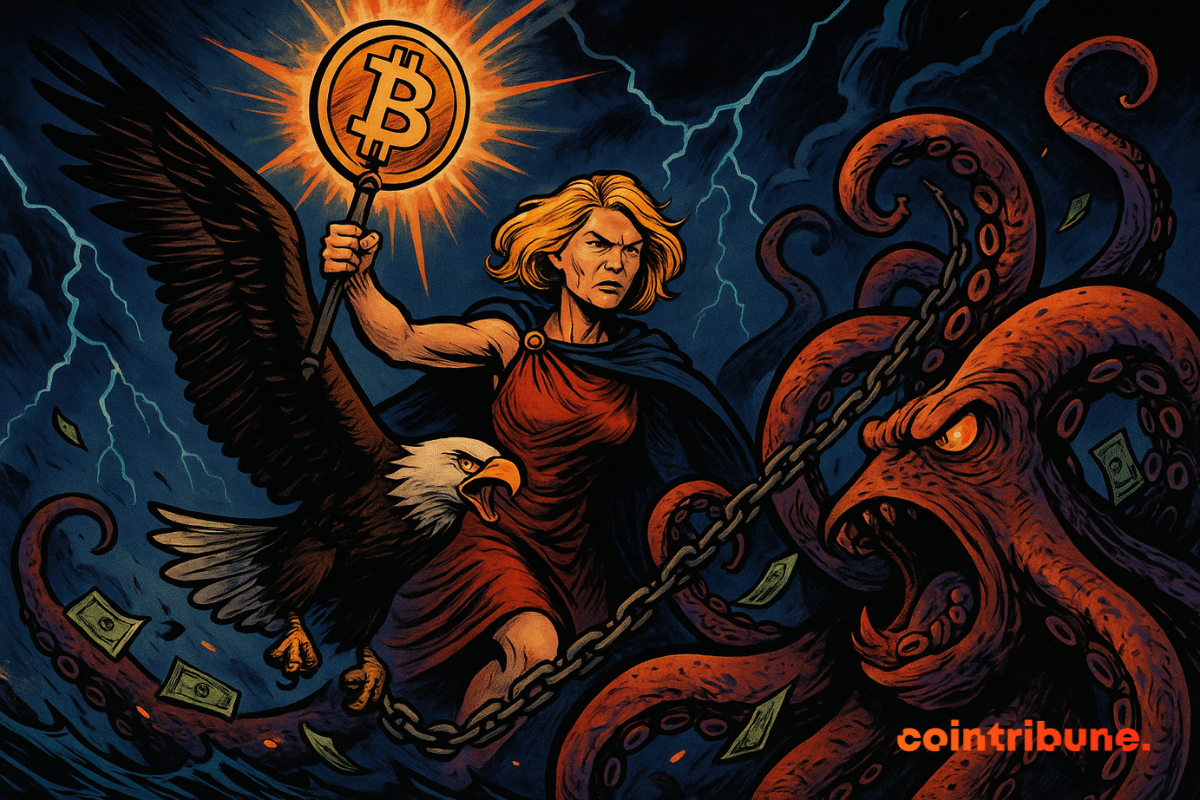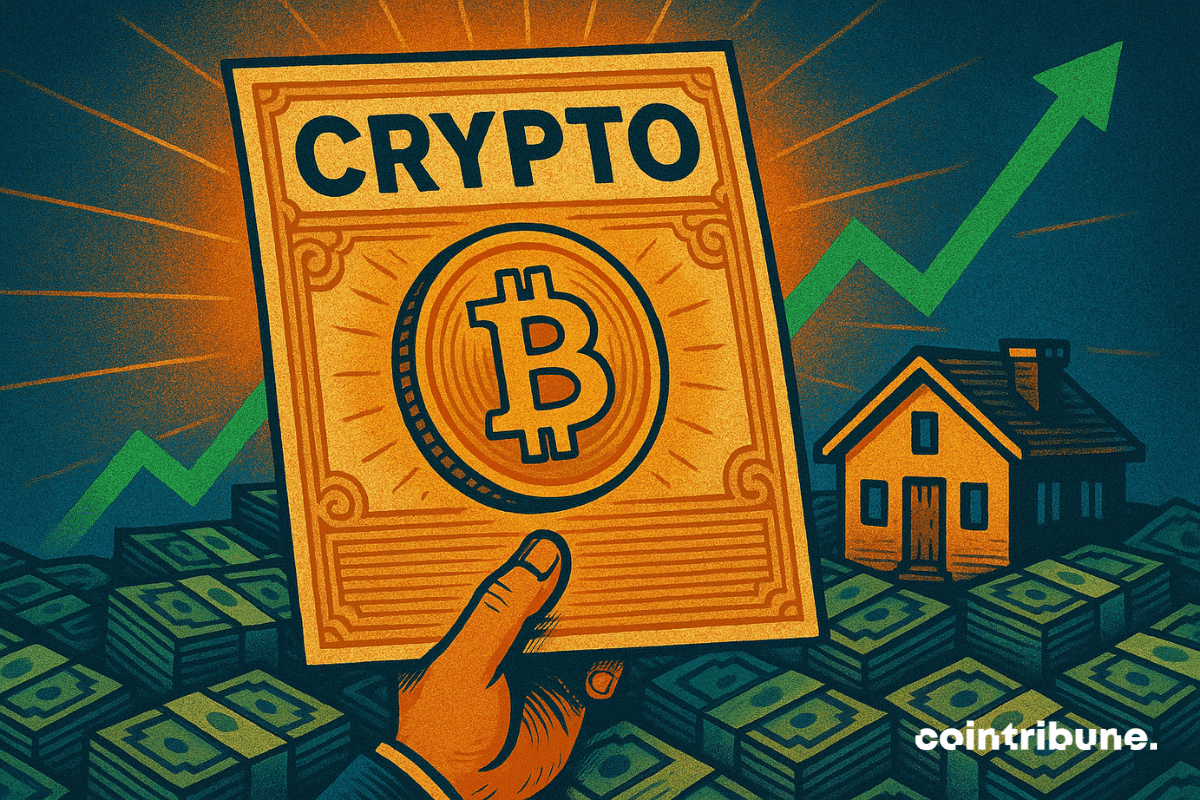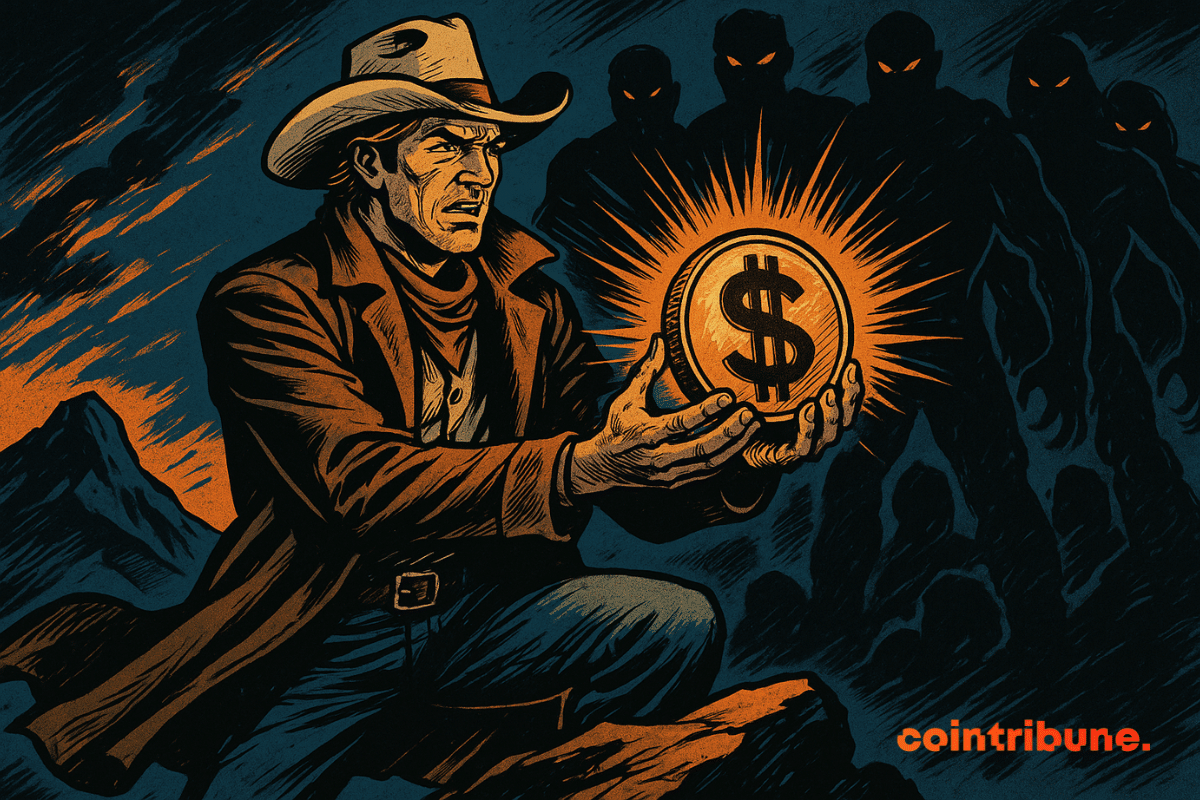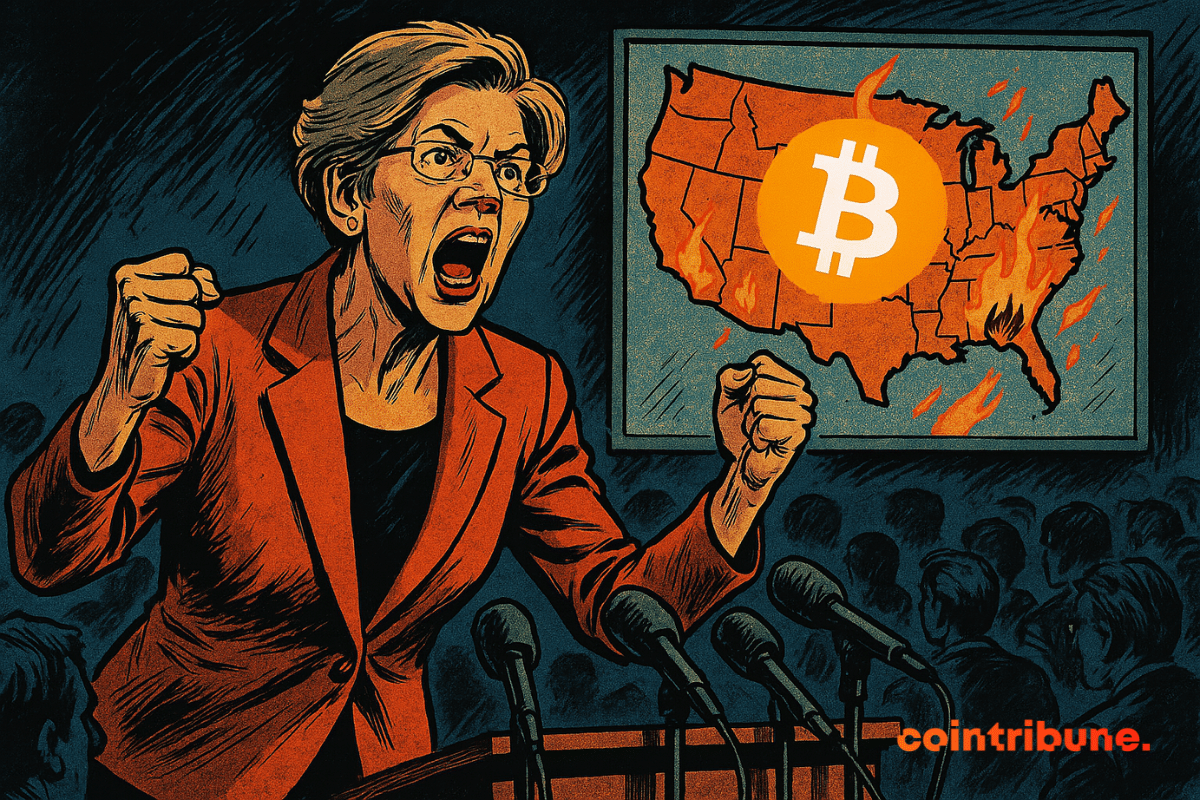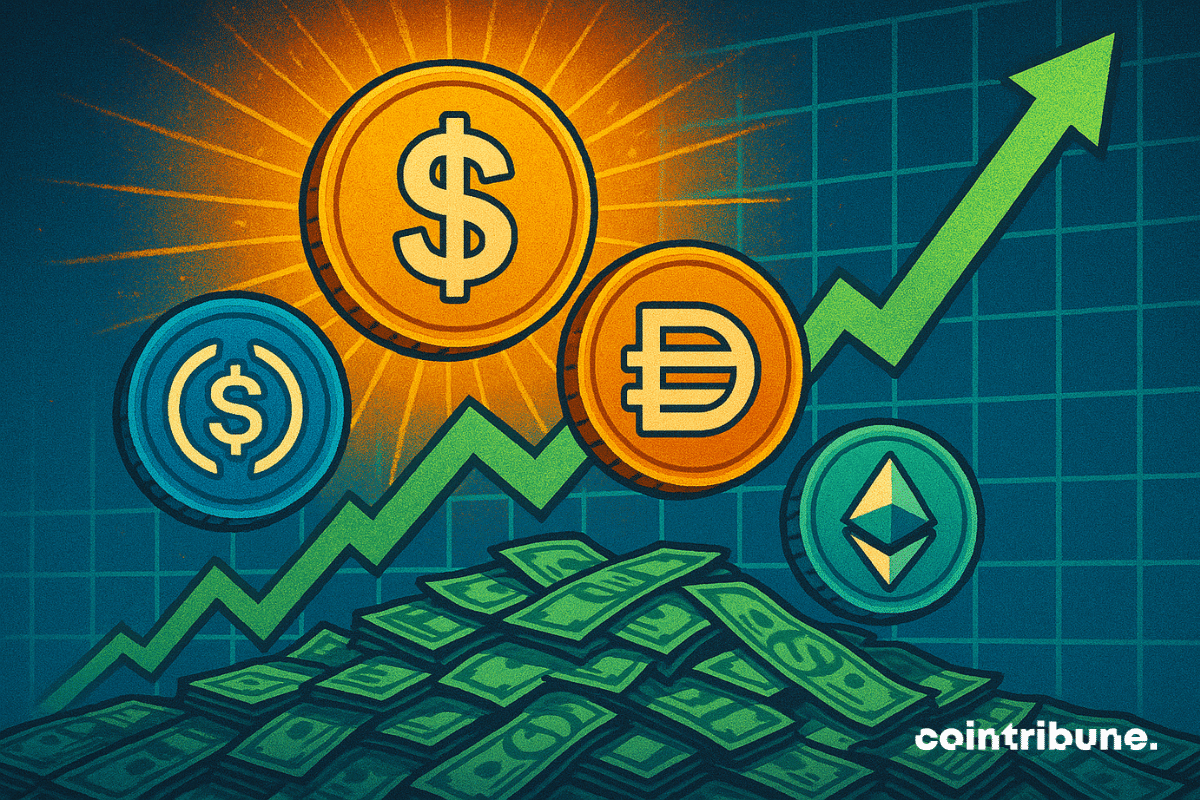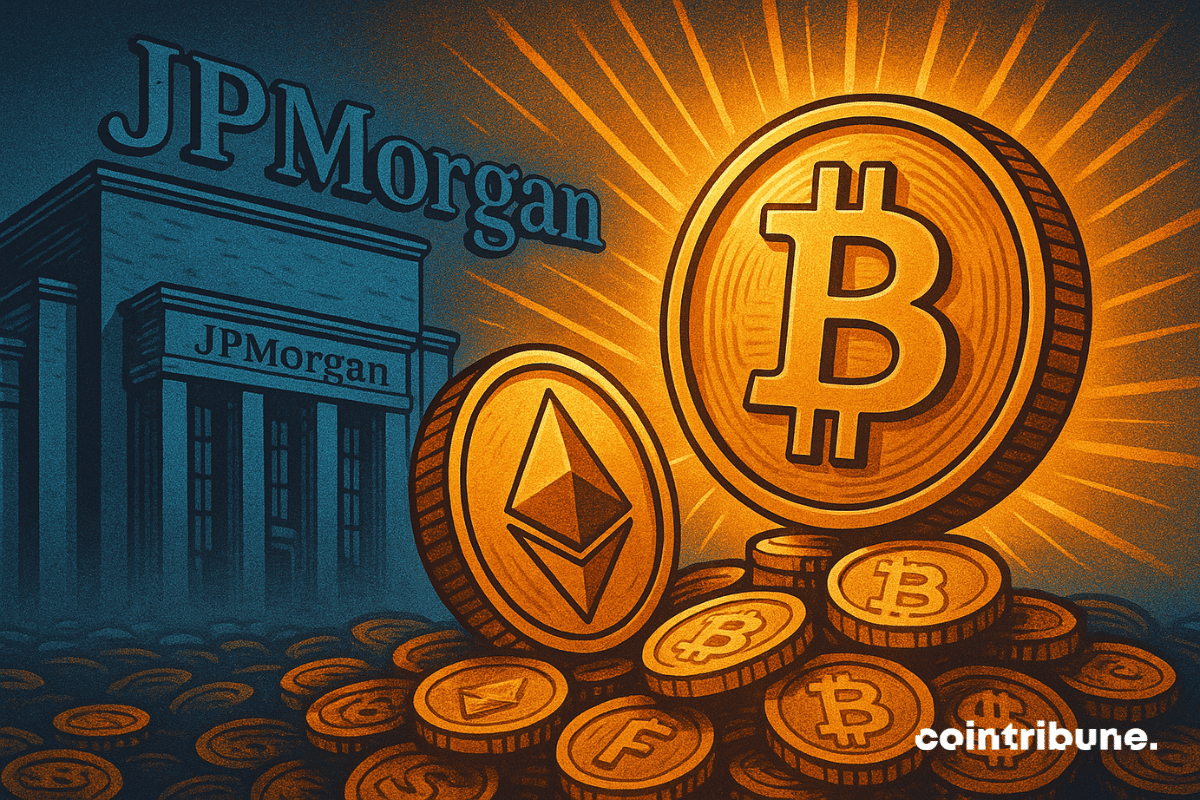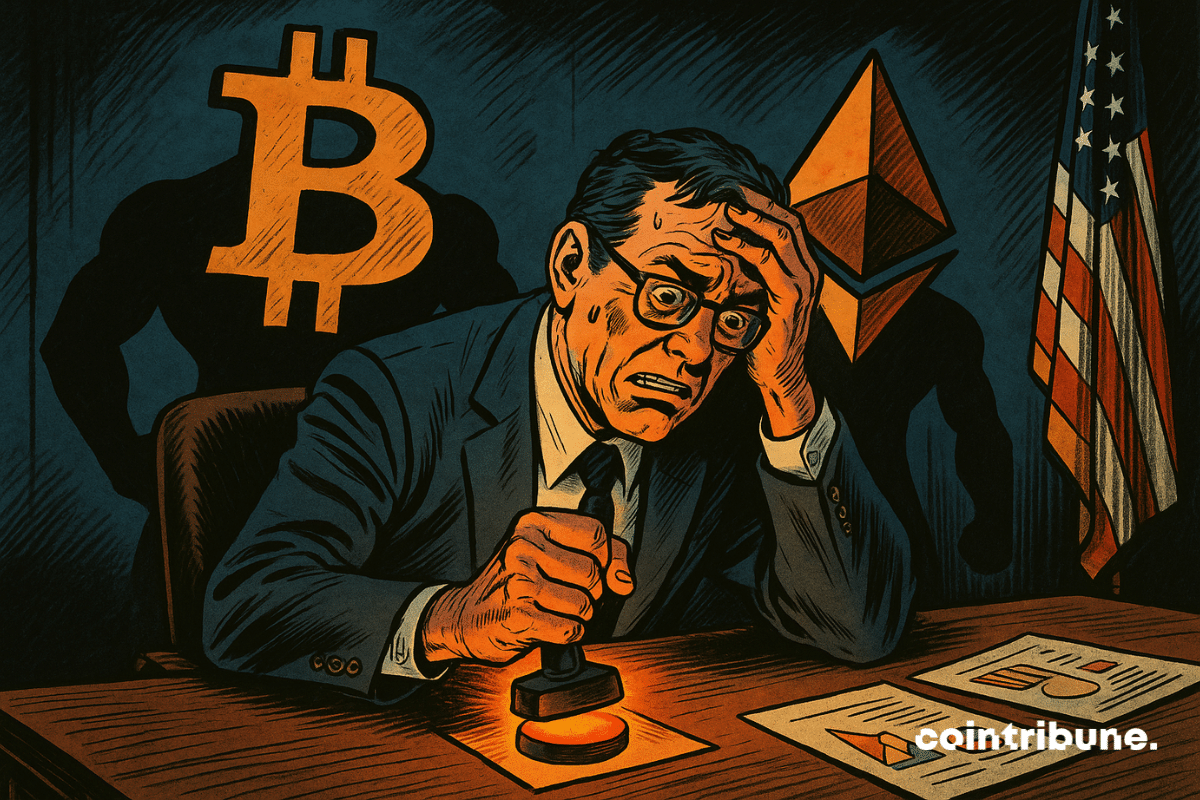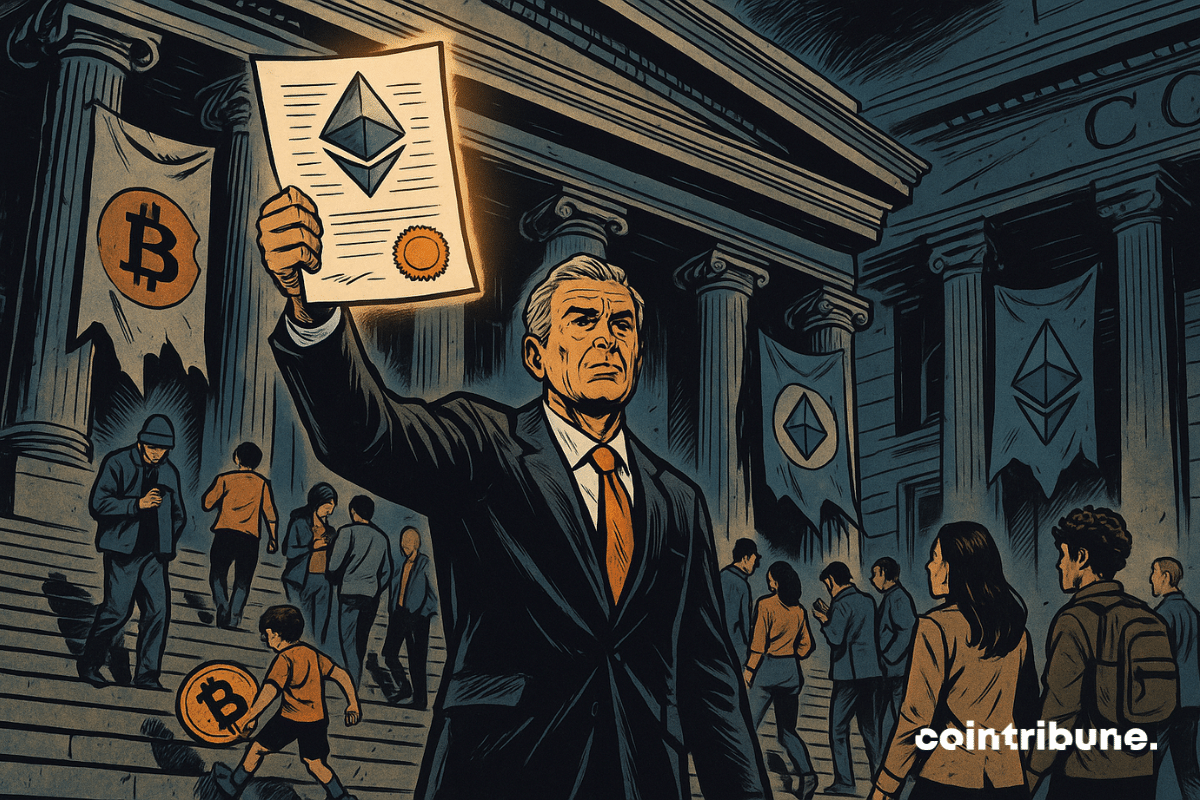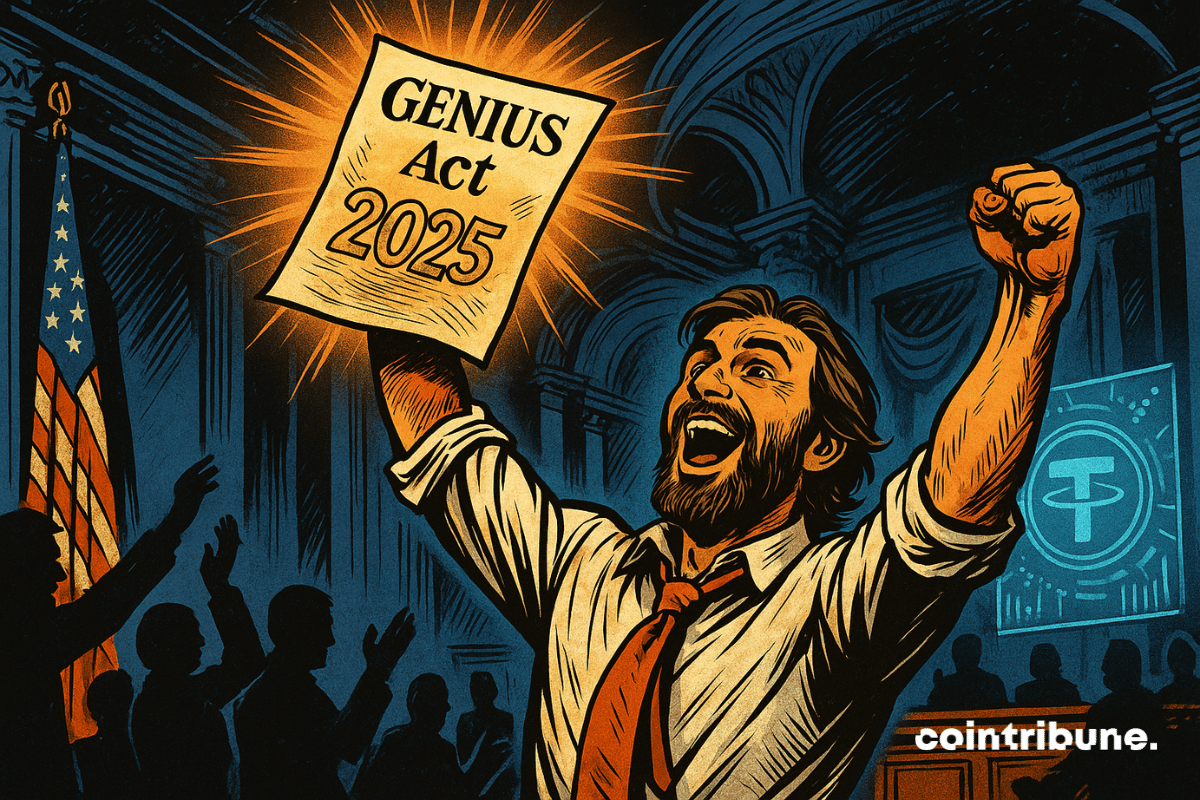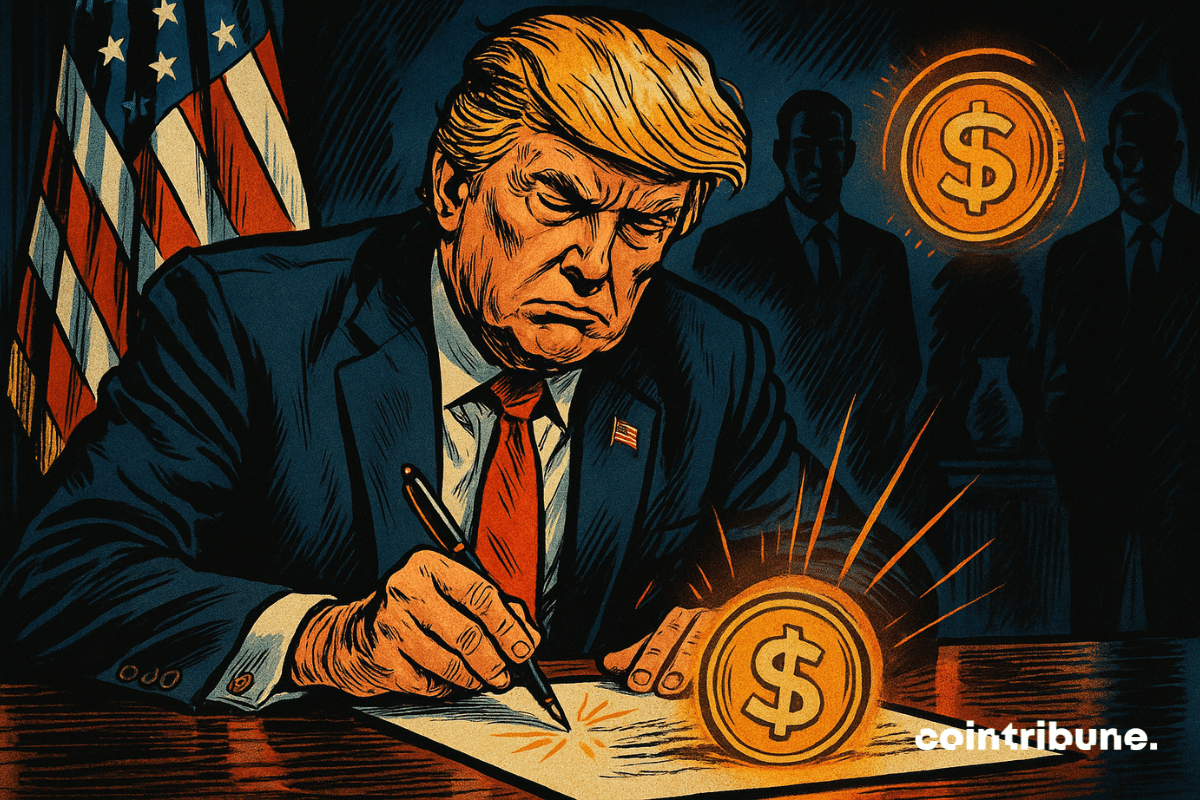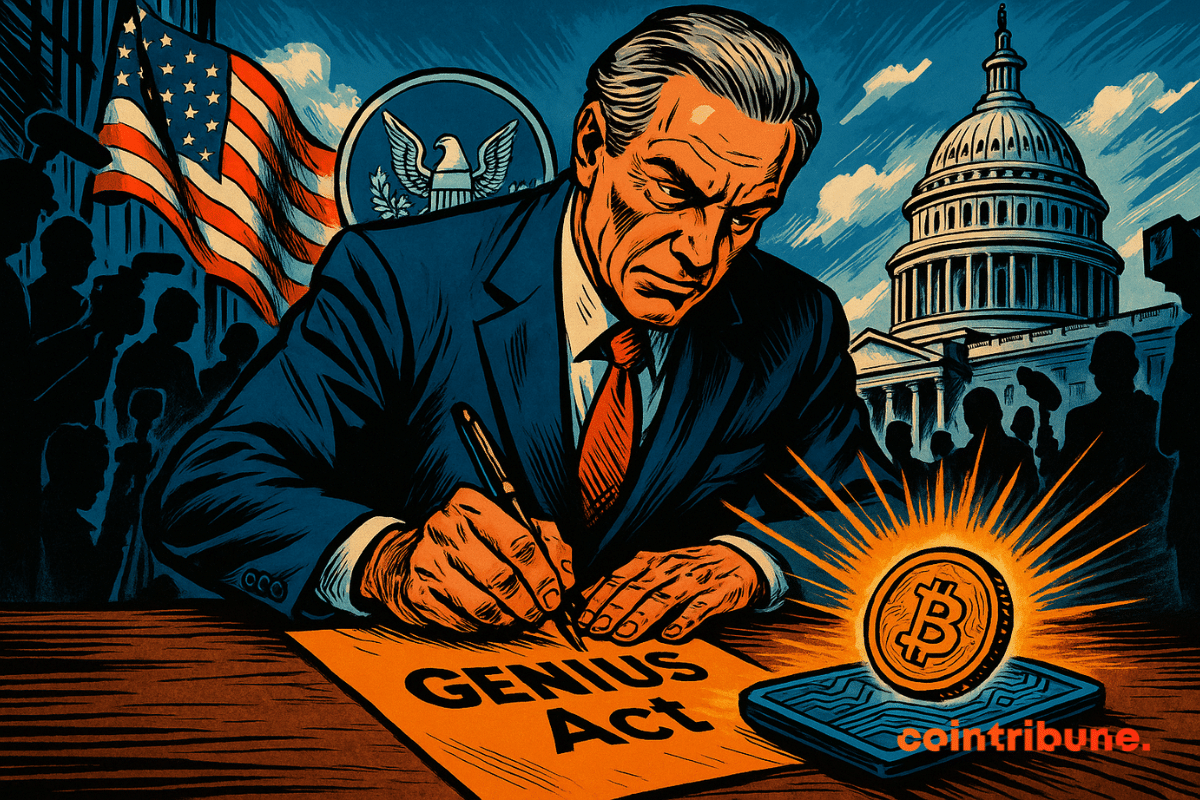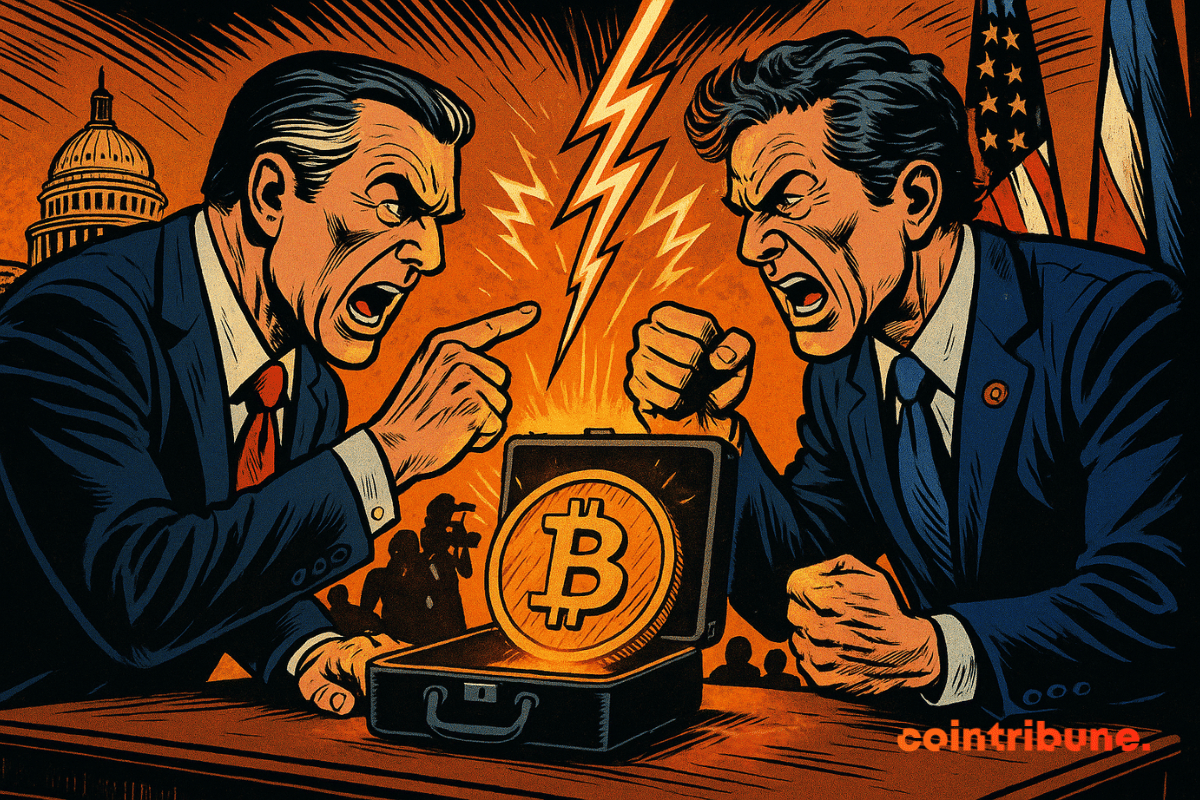Would Architect aim to become the Moody’s of Web3? A credit rating project based on blockchain is shaking the crypto sphere. A mutation in progress or just a publicity stunt? Discover what is really happening.
Theme Crypto regulation
A law passed unnoticed allows borrowers to mobilize their digital assets as collateral. A discreet but symbolic turning point for the integration of cryptos into traditional finance.
Crypto: Changpeng Zhao denies all responsibility in the fall of FTX and asks for the cancellation of the 1.8 billion lawsuit. Details here!
Donald Trump plans to sign a presidential decree to protect crypto companies and other entities targeted by banking exclusion. The text will order regulators to investigate banks' practices and sanction those that have broken the law by closing accounts for political reasons
Trump dreams of a crypto eldorado, the CFTC sprints, the SEC follows… but behind the speeches, who really regulates this digital rush westward? Regulatory suspense guaranteed.
U.S. stocks suffered a blow on August 1, losing $1.1 trillion in value after President Donald Trump reportedly fired the head of the Bureau of Labor Statistics, Erika McEntarfer. The decision came hours after a disappointing July jobs report.
While some tighten their belts, Tether stacks billions in Treasury bonds. Crypto miracle or well-oiled cash machine? You be the judge, numbers to support.
The SEC has announced the launch of “Project Crypto,” an initiative to modernize securities regulations and turn the United States into the global hub for crypto and blockchain innovation.
Ever since crypto assets entered the financial circles, many industry participants, including stakeholders, have called for a clear classification of these blockchain assets. Strategy’s (formerly MicroStrategy) CEO, Michael Saylor, has also lent his voice, calling on the U.S. government to give a set definition to digital securities and commodities.
The standoff between Donald Trump and the Federal Reserve is intensifying. The president accuses the institution of sabotaging the economic recovery by refusing to lower interest rates quickly. Ahead of a decisive meeting and amid growing trade tensions, the Fed is under heavy fire. In an increasingly politicized environment, the central bank’s independence is being tested as markets scrutinize its every signal while the U.S. economic trajectory remains uncertain.
As cryptocurrencies reshape the global financial balance, the Trump administration reveals its strategic response. An anticipated report from the President’s Working Group on Digital Assets lays the groundwork for an explicit pro-crypto framework: innovation encouraged, regulation strengthened. This ambitious plan aims to propel the United States to the forefront of the technological race while asserting its economic sovereignty against the rise of rival actors.
E-commerce giant JD.com is getting ready to enter the stablecoin race as Hong Kong’s regulatory regime for digital currencies officially kicks off. The company has registered two potential stablecoin-linked entities, Jcoin and Joycoin, through its fintech arm JD Coinlink Technology, just days before the city’s new framework takes effect.
Interest in stablecoins is reaching unprecedented heights. As the market capitalization crosses the historic threshold of 270 billion dollars, Google searches are literally skyrocketing. Does this rush towards stable digital currencies coincide with the adoption of the GENIUS law?
Binance suspends crypto withdrawals on July 31 for maintenance. A quick cutoff, but one that reveals hidden tensions in the wallet infrastructure. Centralization, risks, strategy: discover what this technical pause really says about the Binance universe.
Trump wants to launch his Bitcoin ETF via Truth Social, the SEC hesitates, and the Democrats scream: regulation or crypto blessing for a former president who knows how to inflate his tokens?
Satoshi’s original vision for Bitcoin was to function as a decentralized peer-to-peer electronic cash system, free from the influence of governments or financial institutions. However, U.S. lawmaker Senator Cynthia Lummis believes that Bitcoin could serve a far greater purpose as a hedge against the rising cost of living.
A federal initiative to incorporate crypto holdings into mortgage applications is facing growing resistance, as lawmakers warn of potential shocks to the housing finance system.
A cowboy state that prints its own currency, a public cryptocurrency backed by the dollar... WYST could well be the test run of a made-in-USA monetary cold war.
When Trump plays the central banker by launching his own crypto, Warren sounds the alarm: regulate, yes. Offer a safe haven for billionaires, no. To be continued under the gilding...
Just one week after the U.S. passed its first comprehensive crypto legislation, the stablecoin market has added over $4 billion in fresh supply entering circulation. The newly signed GENIUS Act is already changing the sector. By providing a federal framework for fiat-backed stablecoins, it gives banks, asset managers, and fintech startups a regulatory greenlight. It allows for new capital, new players, and a clear path forward for tokenized dollars.
JPMorgan Chase is reportedly exploring a new lending product that would allow clients to borrow against their crypto holdings. According to sources cited by the Financial Times, the U.S. banking giant is in internal discussions to launch crypto-collateralized loans, potentially as early as next year. The plan would let clients use cryptocurrencies such as Bitcoin, Ethereum, or even crypto-focused ETFs as collateral in exchange for cash or credit. While still in its exploratory phase, the product would be JPMorgan’s clearest signal yet that it is taking crypto seriously.
The SEC seems finally ready to take a decisive step. Several Bitcoin and Ethereum ETF issuers have just filed modifications to include in-kind redemptions. A key step for these products, which could thus gain in attractiveness and tax efficiency. This long-awaited regulatory breakthrough would radically transform the attractiveness of these financial products.
In a rapidly changing banking sector, Fortuneo is about to reach a decisive turning point. By exploring the integration of cryptocurrencies into its offerings, the French neobank is following a trend already initiated by its European competitors. This strategy is expected at a time when digital investment is becoming a new norm rather than a passing trend.
Latin America facing the crypto challenge: a broken staircase represents the regulatory barriers that hinder the adoption of cryptocurrencies in the region.
A historic milestone has been set in the regulation of cryptocurrencies. At the close of a strategic Crypto Week, the U.S. Congress adopted the GENIUS Act, which was promptly signed by Donald Trump. This federal legislation regulates stablecoins for the first time without categorizing them as financial securities. For a sector long hindered by legal uncertainty, this text marks a clear shift towards the institutionalization of digital assets.
Tether, once allergic to regulation, now bows to Washington. Opportunism? Late awakening? Crypto is opening a highway... but watch out for the toll!
When Trump regulates cryptos and legalizes his own stablecoins, it smells like a full-on electoral strategy. But who will oversee the genius of the GENIUS Act? Not the children, apparently.
After years of uncertainty and tug-of-war between innovation and crypto regulation, the United States finally seems ready to define its course on the burning issue of crypto. On July 17, the Securities and Exchange Commission (SEC) heralded a historic legislative turning point: the passage of the GENIUS Act in the House of Representatives. This ambitious text, now on its way to Donald Trump's desk for enactment, aims to lay the groundwork for clear, proactive, and decidedly future-oriented regulation. Behind the acronyms and well-rehearsed speeches, a message is emerging: crypto is no longer a regulatory anomaly but a strategic lever for the American economy.
In Washington, crypto is taking shape: laws are being passed, Trump rejoices, and the Fed must put away its digital dreams. Regulation is turning into a soap opera with distinctly American twists.
Pakistan and El Salvador are joining forces when it comes to crypto. Bilal Bin Saqib, CEO of the Pakistan Crypto Council, met with El Salvador’s President Nayib Bukele in San Salvador. The goal was to establish closer cooperation on digital assets, as both nations double down on Bitcoin adoption.
